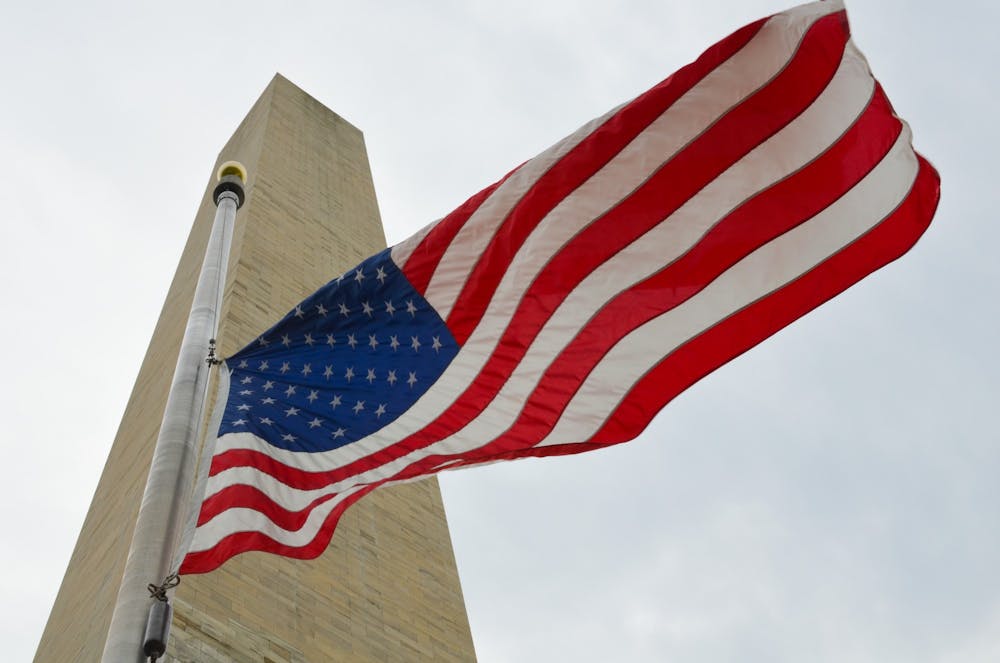As I sat behind a computer screen on April 29 reviewing the pros and cons list that would weigh arguably the most important decision of my young adult life, I realized the University of Pennsylvania had two major benefits over its competitors: the value Penn places in the diversity of opinion, and the importance of civic engagement. These factors ended up winning my commitment the following day.
This month, as I’ve begun my career as a Quaker, I sit once again behind my computer screen puzzled by whether this commitment to civic engagement is accompanied by an understanding of public policy. As the 2020 presidential election approaches, political advocacy is at the forefront of everyone’s minds, Penn students included. With the University adapting its famous Penn Reading Project to match the current climate, The Year of Civic Engagement welcomes in a class of new voters.
My involvement with the PRP concluded a summer of combating misinformation in the age of partisan click bait and skewed sound bites. In June, I was galvanized to start a podcast geared at informing college and high school students about politics in an engaging, nonpartisan format. In marketing for my podcast, I became increasingly aware of the lack of informed activism being promoted by members of my incoming class. Rather than citing policy actions and news articles accompanied by statistics, my Instagram feed was filled with colorful slides, altruistic claims, and people retweeting verified accounts.
This is not a problem isolated to Penn students, but in fact represents an epidemic of partisanship and uninformed political expression in the United States. Led by our current leadership on both sides of the aisle, who often prioritize party agenda and their own personal interests over facts, my generation has been brought up in a world where the norm is echo chambers, as opposed to open dialogue. So, my question becomes, how does the "Civic Ivy" plan to teach Civic Literacy to its incoming class?
Civic literacy is often described as the knowledge and skills one must acquire to have an understanding of government processes, remain informed on issues, and exercise their rights. However, is it to be expected that a semester or even a year of high school level civics and less of economics is sufficient to develop a civically literate population? As someone who has recently taken AP U.S. Government and Politics, I think not. It therefore becomes the responsibility of universities like Penn to not only instill their students with a passion for activism, but also an in-depth understanding of the way our government truly functions and the best way to participate in the democratic process through diversity of thought.
However, it’s even more critical now that universities are conscientious of how they inform their students. Incidents like the Texas A&M anthropology professor currently facing condemnation from the University’s Board of Regents for his disparaging comments about the president and Rep. Louie Gohmert (R-Texas) represent the extremity of political bias in college education. In order to express the importance of diversity of thought in shaping one’s opinions as well as in the legislative process as a whole, it's vital that universities represent a variety of opinions in their civic education.
So how exactly can Penn weave this foundational knowledge into its undergraduate education? Well, the structures are already in place. Advisors and professors should encourage students to fulfill their Society and/or Humanities and Social Science sector requirements with courses like PSCI 130 and ECON 002. Similarly, the University should encourage bipartisan political engagement on campus in activities that promote civil discourse, like the Penn Political Union and the Penn Government and Politics Association. We can also help to produce this environment by calling upon the University to invite speakers that are informative and represent views across the aisle.
At Penn, there isn’t a lack of political outlets for civic engagement, as demonstrated by active groups on campus such as Penn Democrats, College Republicans and Penn Leads the Vote. However, we shouldn’t settle on voting as bare minimum engagement. More people rushing to the polls to partake in straight-ticket voting will not help our country progress out of stifling polarization. Instead, we should set our sights on Civic Literacy. In education, we will find a passion for the democratic process fueled by a sense of patriotism and pride in wanting to improve this country’s amazing values and practices. Let’s ensure that the next class of Penn students can say they were inspired to attend the "Civic Ivy" for the same reasons I was.
RELATED:
From Civil Rights to Black Lives Matter: Inside the fight for racial justice at Penn
New co-director of Annenberg media center will lead studies on Black voices in politics
LEXI BOCCUZZI is a College first-year student studying Philosophy, Politics and Economics









